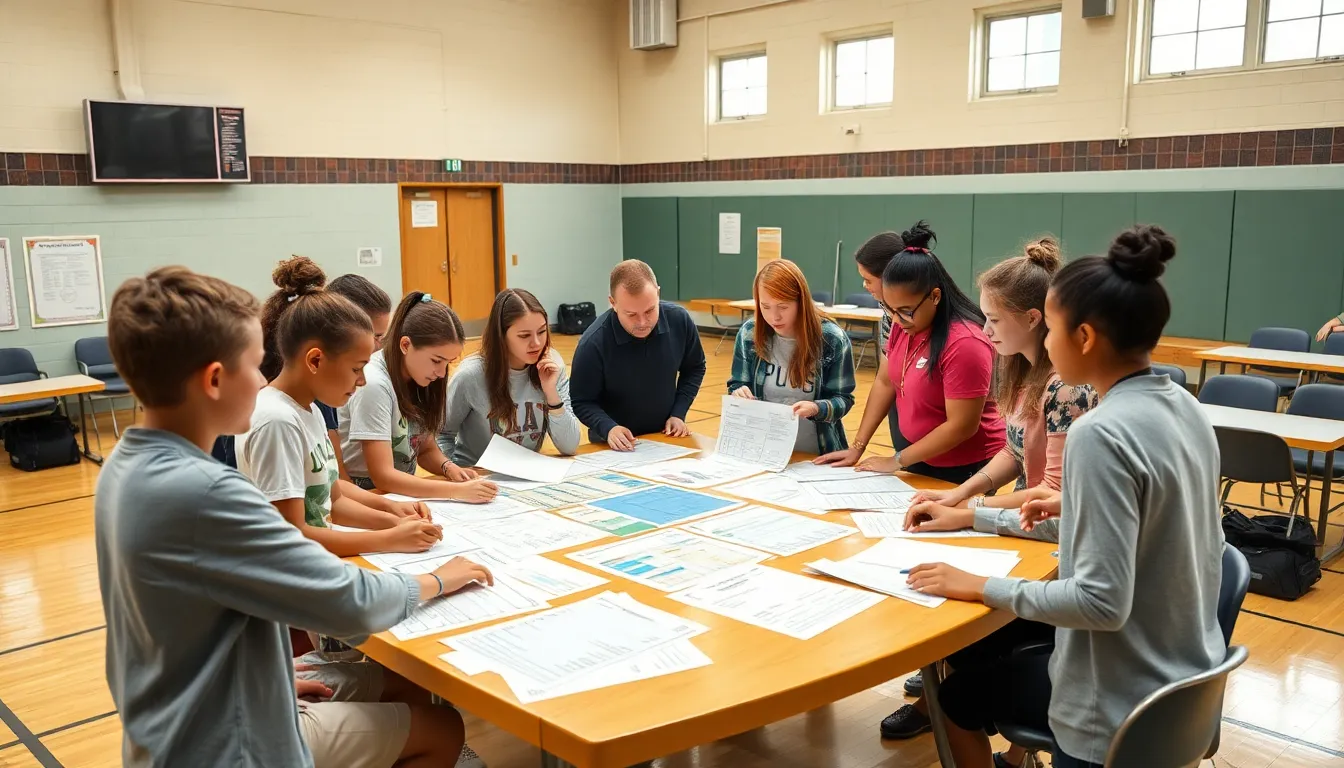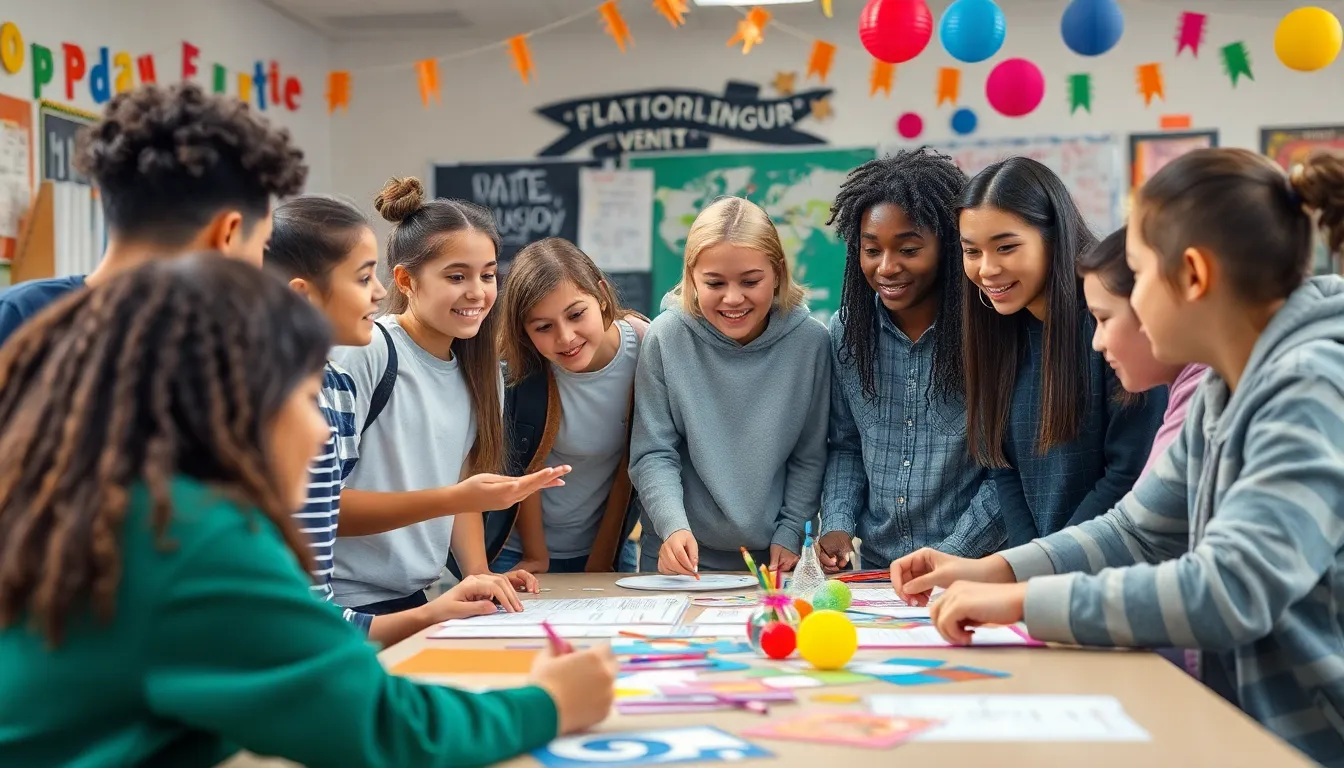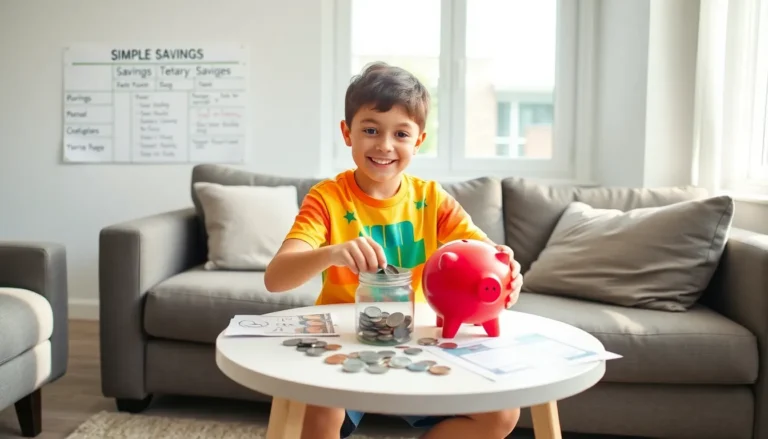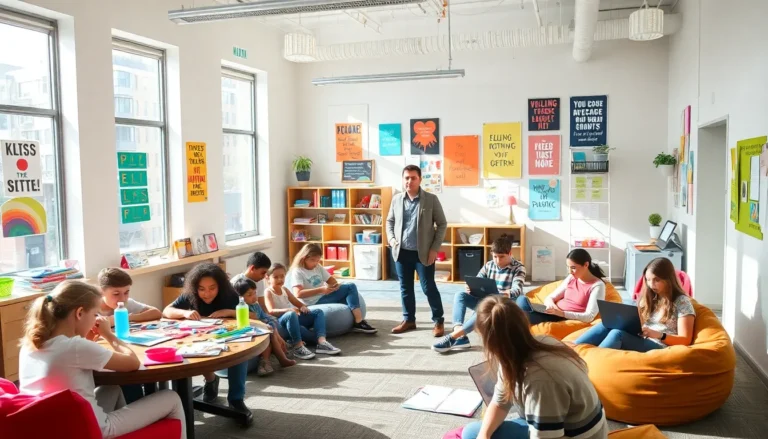Planning a school event can feel like trying to herd cats—exciting but chaotic. From coordinating schedules to wrangling volunteers, it’s a whirlwind of creativity and logistics. But don’t worry; it doesn’t have to be a circus act! With the right strategies, anyone can turn a simple gathering into an unforgettable experience.
Table of Contents
ToggleImportance Of School Event Planning
Effective school event planning enhances community engagement. Engaged parents, students, and staff contribute positively to school culture.
Resource allocation plays a crucial role. With clear planning, schools can maximize available funds, ensuring necessary supplies and facilities are secured.
Student participation peaks during well-organized events. These activities encourage collaboration, skill development, and social interaction, fostering a sense of belonging.
Event themes foster creativity. Unique topics can spark interest and motivate students to contribute ideas, increasing overall involvement.
Strong organization streamlines communication. Clear roles and responsibilities create accountability among volunteers, decreasing misunderstandings.
Timely execution boosts attendance. When events are effectively promoted, they attract more participants, optimizing the overall experience.
Logistics significantly impact success. Careful attention to details, such as venue selection and scheduling, minimizes disruptions and encourages smooth operations.
Feedback collection enhances future planning. Gathering insights from attendees helps refine approaches to create even more engaging experiences in subsequent events.
Networking opportunities arise through events. Schools can connect with local businesses and organizations, fostering partnerships that support educational initiatives.
Event planning builds leadership skills among students. Taking on responsibilities encourages students to develop project management, budgeting, and teamwork skills, preparing them for future endeavors.
In short, prioritizing comprehensive planning can transform school events into valuable community experiences that benefit everyone involved.
Key Steps In School Event Planning

Effective school event planning involves clear objectives and thoughtful budgeting. Both elements play critical roles in ensuring a successful event.
Setting Objectives
Establishing objectives focuses the planning process. Clear goals guide decisions and motivate participants. When setting these objectives, involve staff, students, and volunteers for diverse perspectives. Choosing achievable and measurable targets helps assess the event’s success. For instance, if promoting school spirit is a goal, organizing activities that encourage participation, such as spirit days or rallies, supports that aim. Each objective should resonate with the school community to enhance engagement.
Budgeting Considerations
Budgeting forms the backbone of event planning. Start by determining available funds and estimating costs for various aspects, including venue, supplies, and promotions. Gather quotes from vendors to ensure accurate financial planning. Include contingencies for unexpected expenses to avoid overspending. Tracking expenses against the budget throughout planning helps maintain financial responsibility. Organizing sponsorships or partnerships can supplement funds, allowing for more robust event offerings. Prioritizing budget transparency with stakeholders fosters trust and accountability.
Roles And Responsibilities
Successful school event planning hinges on clearly defined roles and responsibilities. Each participant plays a vital part in organizing a seamless experience.
Event Planning Committee
The event planning committee drives the overall success of school events. Members typically include teachers, administrators, and parents, each contributing unique insights. Task delegation among committee members enhances efficiency, ensuring essential tasks like logistics and marketing receive adequate attention. Frequent meetings keep everyone aligned, fostering teamwork and addressing challenges promptly. Establishing a clear timeline helps identify deadlines, which keeps the planning process on track. Engagement from all members boosts creativity, allowing diverse ideas to flourish in event themes and activities.
Student Involvement
Active student involvement enriches school events significantly. Students can serve on planning committees or volunteer during events, gaining hands-on experience. Encouraging participation fosters leadership skills and promotes a sense of ownership. Providing opportunities, such as peer mentorship or project leadership, cultivates responsibility and initiative. Their voices influence event themes and activities, reflecting the interests of the student body. Events become more vibrant and engaging when student contributions and feedback shape decision-making. Celebrating achievements through showcases or awards builds school spirit and community bonds.
Popular Types Of School Events
School events vary widely and serve multiple purposes, enhancing both engagement and community spirit. Each type of event offers unique opportunities for participation and learning.
Fundraisers
Fundraisers are essential to support school programs and initiatives. They can take various forms, including bake sales, car washes, and fun runs, designed to foster community involvement. Engaging students and families in fundraising efforts creates a sense of ownership. Planning a successful fundraiser relies on clear goals and creative ideas. Successful events often feature incentives, such as prizes or recognition, that motivate participation. These activities not only raise funds but also strengthen bonds within the community.
School Dances
School dances provide students with fun social experiences that encourage friendship and school spirit. Themes like homecoming or seasonal celebrations create excitement and anticipation. Organizing these events requires a focus on creating a safe and inclusive environment for everyone. Choosing appropriate music and decorations enhances the overall atmosphere. Student involvement in planning allows for unique ideas that resonate with their peers. Successful dances offer opportunities for memorable experiences that students will cherish.
Educational Workshops
Educational workshops focus on skill development and personal growth for students. Topics can range from art and science to career readiness and mental wellness. Inviting guest speakers or local experts adds value and brings real-world insights into the school. Workshops often promote teamwork, encouraging students to collaborate and learn from one another. Providing hands-on activities enhances understanding and retention of information. Schools that prioritize such events foster an environment of continuous learning and exploration.
School event planning is a rewarding yet challenging endeavor that brings communities together. By focusing on clear objectives and effective budgeting, planners can create memorable experiences that enhance school culture. Engaging students in the planning process not only fosters leadership skills but also ensures events resonate with the entire community.
With thoughtful organization and attention to detail, school events can thrive, encouraging participation and collaboration among students, staff, and families. As these events unfold, they serve as vital networking opportunities and platforms for creativity. Embracing the complexities of event planning ultimately leads to a vibrant school environment where everyone feels connected and valued.




